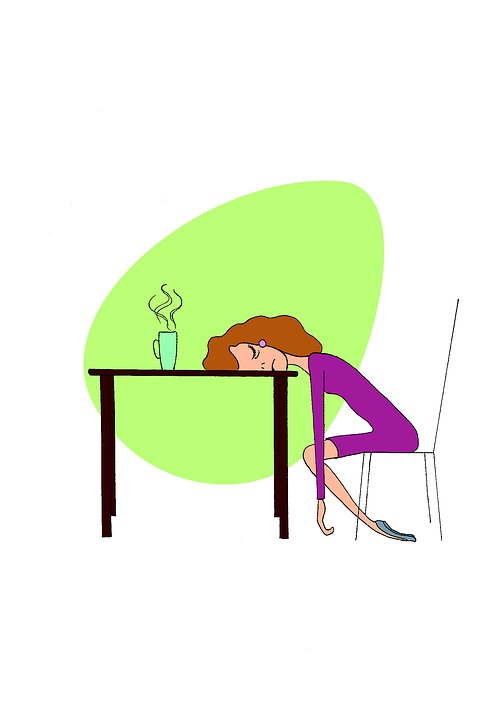People with Chronic Fatigue Syndrome feel exhausted and very tired. Sometimes fatigue makes it difficult even to perform everyday activities that most of us don’t think about when getting dressed, showering, or eating. Even if you sleep or rest, the tiredness doesn’t go away and can even worsen when we move around exercise, or simply when concentration is required.
Symptoms
The symptoms of chronic fatigue syndrome can be continuous or intermittent. Initially, the patient may feel like they have the flu, but in addition to particularly severe fatigue and weakness, symptoms of chronic fatigue syndrome may include:
- Fatigue that lasts more than 24 hours, after physical or mental exercise,
- Forgetting things or having difficulty concentrating,
- Feeling tired even after sleeping,
- Muscular pains,
- Joint pain, without swelling or redness,
- A different or more severe headache than usual,
- Pain in the lymph nodes of the neck or armpits,
- Sore throat.

The symptoms listed above are the main ones, but patients may complain less often: 
- Visual disturbances (blurred vision, sensitivity to light, eye pain),
- Psychological symptoms (irritability, mood swings, panic attacks, anxiety),
- Night sweats and chills,
- Mild fever or low body temperature,
- IRritable colon,
- Allergies and intolerances to food, smells, chemicals, medications, and sounds/noises,
- Numbness, tingling, or burning in the face, hands, or feet,
- Difficulty sitting or standing up quickly, dizziness, balance problems, and fainting spells.
The symptoms of chronic fatigue syndrome vary significantly from patient to patient and can be severe or very mild. Most signs are not obvious, and, as a result, friends, family, and people other than the patient may have difficulty understanding the challenges the patient faces.
If you think you may have chronic fatigue syndrome, ask your doctor for advice.
Causes
No one knows for sure what causes chronic fatigue syndrome; in many patients, it occurs after an infection, for example, after a cold or the stomach flu, or after being infected with the Epstein-Barr virus, the same virus that causes infectious mononucleosis. Some patients with Chronic Fatigue Syndrome report that it occurs after a period of intense stress, such as the death of a loved one or significant surgery.

Some of the factors that have been studied include:
- Immune system disorders,
- Changes in hormonal balance,
- Psychiatric problems (some cases have been linked to stress, depression, and emotional trauma),
- Familiarity (therefore, some genetic involvement is assumed).
It can be challenging to diagnose chronic fatigue syndrome because severe fatigue is a common symptom of many diseases and even some therapies, such as chemotherapy.
Risk Factors for Chronic Fatigue Syndrome
- Women have a significantly higher risk of falling ill than men (estimated to be 4 times higher).
- The age group most at risk is between 20 and 40-50 years of age, although anyone can get sick.
- Chronic fatigue syndrome is less common in children, who are usually between 13 and 15 years of age.
- People who are overweight and do not exercise are at greater risk of getting sick. Stress also seems to play a role.
Chronic fatigue syndrome affects all ethnic groups and is widespread worldwide; it can affect people in all income brackets, but some research shows that it is more common in lower-income brackets. In some cases, it can affect more than one family member, but there is no evidence that it is contagious; rather, it could be hereditary, although more research is needed in this area.
There appear to be risk factors:
- Psychological stress,
- Childhood traumas,
- The presence of a mental illness,
- Allergies.
To learn more about the diagnosis and treatment for chronic fatigue, come back to check out the second part of this post.


